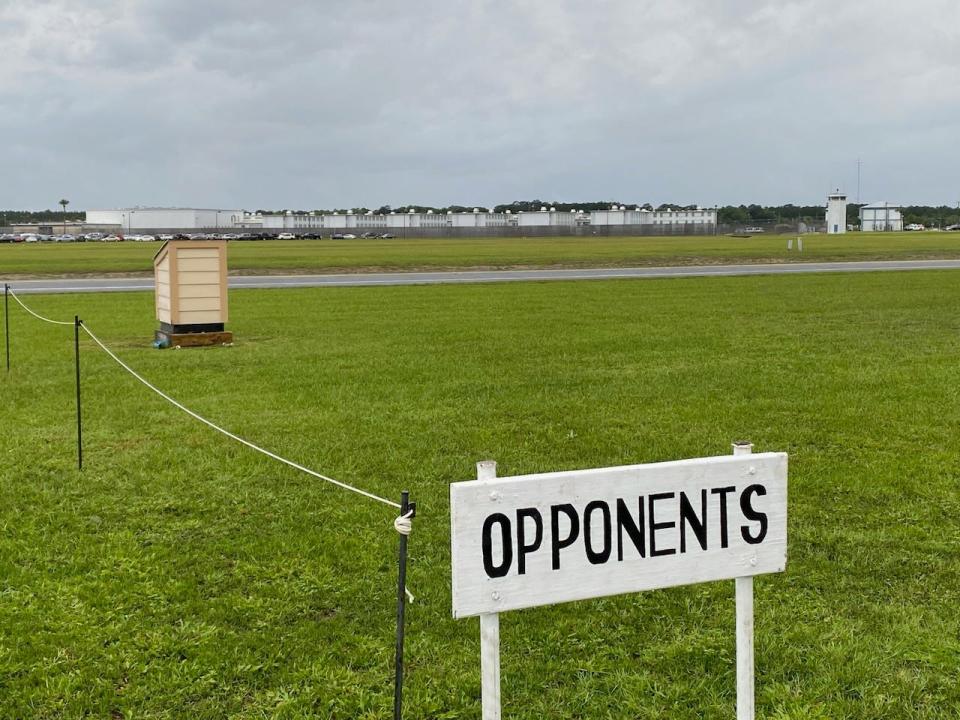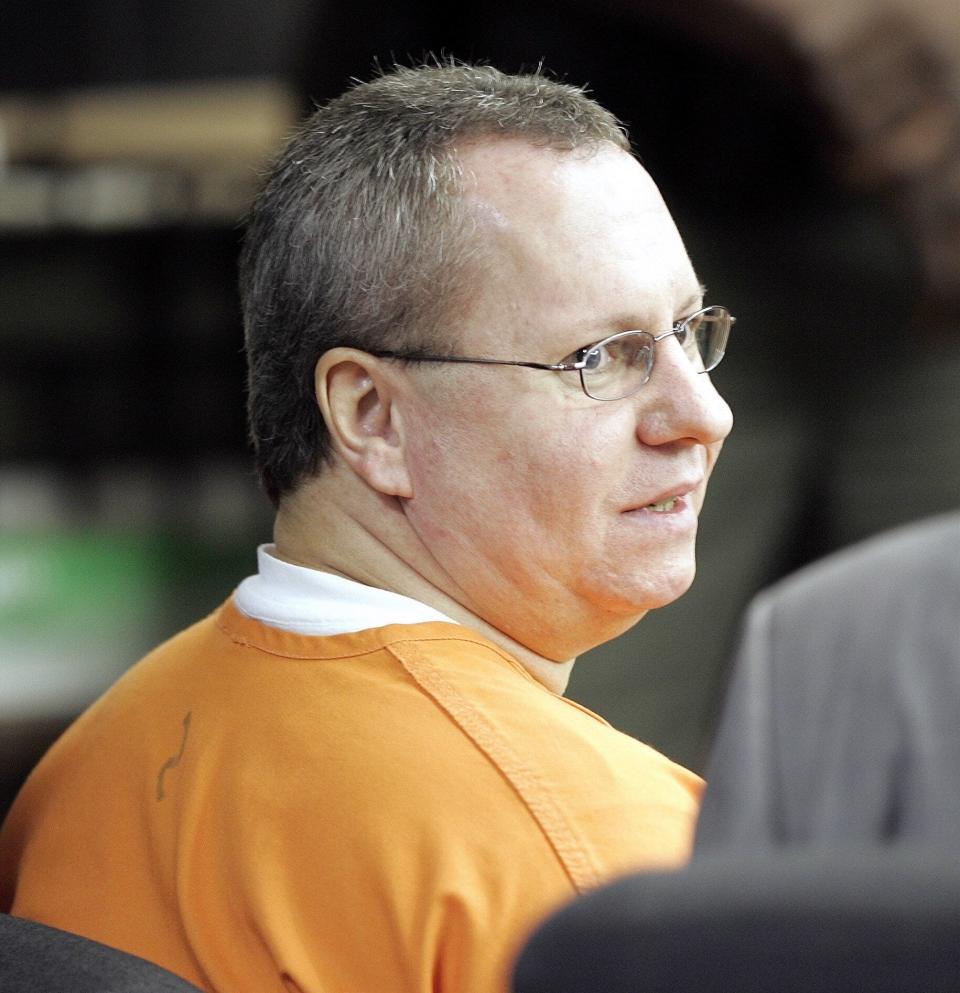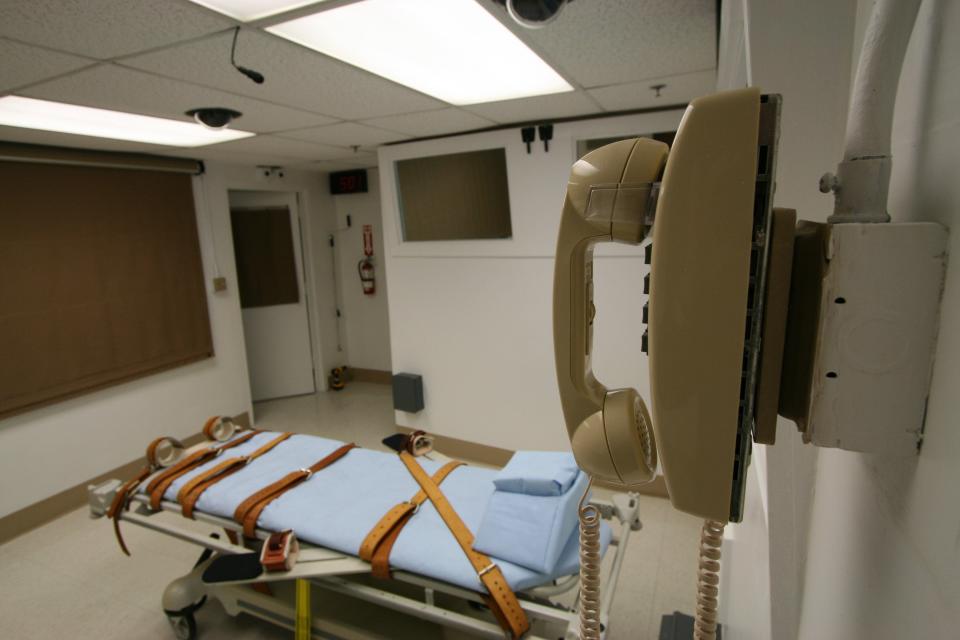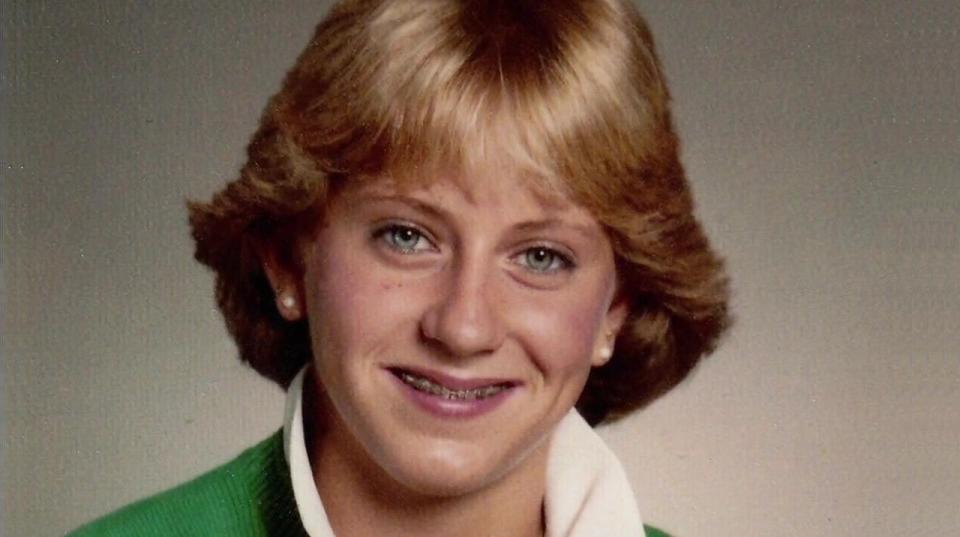Duane Owen executed in killings of babysitter, mom. What Karen Slattery's sister said
The state of Florida executed Duane Owen at Florida State Prison in Raiford on Thursday nearly four decades after his convictions for the murders of two Palm Beach County residents.
Owen, 62, was pronounced dead at 6:14 p.m. after an injection of three drugs was administered while 34 people looked on. There were no last stays.
When asked if he had any final words, Owen said, "No."
Owen was found guilty in the brutal killings of a 14-year old babysitter, Karen Slattery of Boynton Beach, and a 38-year-old executive secretary and single mother of two, Georgianna Worden, of Boca Raton.
Slattery, babysitting a 7-year-old and a 3-year-old at a house in Delray Beach, was stabbed 18 times and raped on March 24, 1984. About two months later, on May 29, Owen raped and bludgeoned Worden to death with a hammer.
Owen, convicted and sentenced to death in both murders, was granted a new trial in the Slattery killing when he claimed he was looking for hormones so he could become a woman. A second jury again convicted him and sentenced him to death.
Slattery's younger sister, who was 10 at the time of her murder, said the state of Florida took far too long to carry out Owen's sentence.
"Thirty-nine in this process is finally over," Debbi Johnson, now a deputy sheriff in Monroe County, read from a prepared statement. "March 24, 1984, Owen attempted to write the final chapter in Karen's book or so he thought. Karen lives on in her community, her friends, her family and, most importantly, her legacy. Today, June 15, 2023, at 6:14 p.m., the state of Florida actually wrote the final chapter of Karen's book. The Slattery family may now close Karen's book, put it on a shelf and move forward."
Duane Owen’s last hours were spent alone Thursday.
He woke up at 7 a.m. and had his last meal early, at 9:45 a.m.
It was a bacon cheeseburger without a bun, onion rings, strawberries, a vanilla milkshake and coffee. Meals can't cost more than $40.
Owen had no visits from a member of the clergy, friends or family.
A spokeswoman for the Florida Department of Corrections released a statement from Owen she said he gave them at 7:45 a.m.
It read:
Duane Owen's appeals: Was he competent to be executed?
During his trials and in numerous appeals afterward, Owen's attorneys have consistently argued that he was mentally incompetent. That argument was the basis of last-days appeals to the Florida Supreme Court, the U.S. 11th Circuit Court of Appeals and the U.S. Supreme Court.
The state Supreme Court rejected that argument on June 5, and the 11th Circuit followed suit late Wednesday morning. Hours later, the U.S. Supreme Court denied his appeal Wednesday afternoon, leaving open for Owen's execution to proceed.
Owen was the 103rd person executed in Florida since the death penalty was reinstated in the United States in 1976.
Only two Palm Beach County murder cases ended in executions

The last person put to death in Florida for a crime committed in Palm Beach County was William Van Poyck, who was executed in 2013 for the 1987 murder of a Glades Correctional Institution guard, who was taking a fellow prisoner to a doctor in downtown West Palm Beach.
Only one other case from the county ended in an execution: Nollie Lee Martin was executed in 1992 for the 1977 murder of 19-year-old George Washington University student Patricia Greenfield, while she worked at a summer job as a Delray Beach convenience store clerk. Martin stabbed her to death at the Lantana dump where he left her body.
Duane Owen started drinking early. His mother, father died when he was very young.

It had been a point of legal contention whether Owen's road to Raiford began that March night when he cut through a bedroom screen, stabbed and raped Slattery or earlier, in the chaotic, drug and alcohol-marred childhood his attorneys have said he endured.
A childhood friend of Owen described his home as one marked by alcohol abuse.
"It was the only house I know to have beer delivered by a beer truck," the friend said.
Owen's mother, an alcoholic, died when Owen was 11. Two years later, his father killed himself.
By then, Owen himself had for years been using drugs and alcohol.
Duane Owen struggled with gender dysphoria
Those problems may well have stemmed from another Owen struggled with — gender dysphoria, which occurs when there is a conflict between the sex a person is assigned at birth and the sex with which that person identifies.
Many with gender dysphoria suffer anxiety, depression and often turn to drug or alcohol abuse.
Owen's attorneys have argued that, based on a 13-hour examination from a neuropsychologist, he suffers from a host of mental health problems.
In legal filings with the 11th Circuit Court of Appeals and the U.S. Supreme Court, Owen's attorneys said he "lacks a rational understanding of the connection between his crime and impending execution due to his fixed psychotic delusions and dementia."
Defense attorneys frequently cite the Eighth Amendment to the U.S. Constitution's ban on cruel and unusual punishment to argue that the mentally ill cannot legally be put to death.
But the U.S. Supreme Court has repeatedly refused to lay out a clear prohibition on executions of the mentally ill, saying only those whose mental illness renders them "unaware of the punishment they are about to suffer and why they are to suffer it" should be shielded from execution.
Some states have begun to broaden bans on execution of the mentally ill.

Ohio and Kentucky have both banned the execution of those with severe mental illness, according to the Death Penalty Information Center, which tracks death penalty cases and laws throughout the country.
Florida one of 24 states still executing inmates
Florida is one of 24 states where the death penalty remains in place. Twenty-three states have abolished the death penalty, and three — Pennsylvania, California and Oregon — have governor-imposed moratoriums in place, according to a review by DPIC.
In those states where the practice remains, it often takes on aspects that are both rote — protests and counter-protests — and macabre — a celebrated "last meal," an opportunity for "last words" and the spectacle of a human being clinically being executed as observers watch behind a glass wall.
Death penalty proponents cite its value as a still-necessary deterrent and a cost-saver, spurning the notion of a convicted killer being fed, housed and provided with health care by taxpayers after committing heinous acts.
But the death penalty's deterrent value is curtailed at least somewhat by the fact that is largely shielded from public view. Journalists observing Owen's death were told in advance that they would not be permitted to bring with them a cell phone, laptop, smart watch or even their own notepad and pen. Instead, they were told they'd be given a notepad and a pair of pencils by corrections officials.
In addition to its limited deterrent value, the death penalty is also not a cost-saver.
"If you're looking for a cost savings, death penalty is not the way to go," said DPIC Executive Director Robin Maher, whose organization takes no position on the death penalty.
Death penalty cases include a built-in, lengthy and costly appeals process — one that often results in years of taxpayer-funded incarceration before the sentence is imposed.
Maher said condemned prisoners in the United States spend an average of 18 years in prison between sentencing and execution.
Owens spent far more time than that waiting to be put to death. He was sentenced to death for Slattery's murder in 1985 and for Worden's killing in 1986.
He has essentially spent 38 years in state custody waiting to die.
In that time, those who have only memories of Slattery and Worden endured a different type of trial.
What might Karen Slattery, Georgianna Worden be doing had they lived?

Who might Slattery be today? She was a freshman at Pope John Paul High, a diving star good enough to get a tryout with the U.S. national team. She had just had her braces removed.
And what of Worden? She had moved to Boca Raton from Syracuse, N.Y., with her husband, John, in 1971. The pair divorced in 1977, and Worden relied on a job as an executive secretary for an architectural firm to care for her two daughters.
The girls were 11 and 9 when Owen killed their mother. It was the 11-year-old who saw blood in her mother's bedroom and called a neighbor.
Owen had struck Worden in the head with a hammer five times. A medical examiner determined that, somehow, she remained alive for 30 minutes to an hour after the first blows.
Worden's murder devastated her family.
"Georgianna should not be dead," her father, Walter Sharritts told the court in a plea for Owen's execution. "Georgianna Worden had her right to live yet it was taken away by Duane Owen."
This article originally appeared on Palm Beach Post: Florida execution: Duane Owen executed after murder of Karen Slattery

